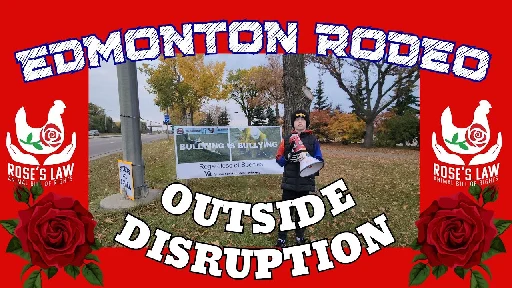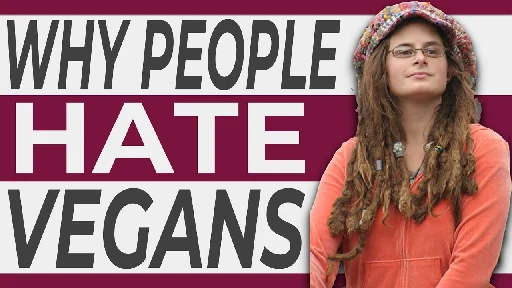Veganism
- Canadian Thanksgiving is a Nightmare for Turkeysanimaljustice.ca Canadian Thanksgiving is a Nightmare for Turkeys 💔
Turkeys eaten for Thanksgiving dinner have nothing to be thankful for.
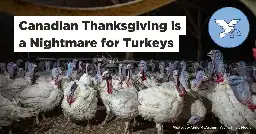
- Rethinking Sapience: The Case Against Speciesism in Animal Intelligence; a ChatGPT hallucination
Rethinking Sapience: The Case Against Speciesism in Animal Intelligence
The question of whether humans are uniquely sapient has long been debated by philosophers, scientists, and ethicists. Sapience—often defined as higher-order reasoning, self-awareness, problem-solving, and moral agency—has traditionally been considered a uniquely human trait. Yet, this view is increasingly being challenged. Research shows that many non-human animals possess remarkable cognitive abilities that rival, or even surpass, those of humans in certain domains. By maintaining the belief that animals “fall short” of sapience, we reinforce a speciesist worldview, one that arbitrarily privileges human intelligence and dismisses the extraordinary cognitive capacities of other species. In fact, when we examine animal cognition more closely, we find that many non-human animals demonstrate intelligence, emotional complexity, problem-solving skills, and memory that far exceed human abilities in their respective ecological contexts. Moreover, recent studies in animal cognition reveal that some animals display moral agency and metacognition—traits that challenge the exclusion of non-human species from the concept of sapience.
The Problem with Human-Centered Definitions of Sapience
Sapience has historically been defined in ways that reflect human-centric values, focusing on abilities such as abstract reasoning, language, and moral reflection—areas where humans appear to excel. However, this definition overlooks the specialized forms of intelligence found across the animal kingdom. By measuring animal cognition against human standards, we ignore the unique abilities that different species have developed to thrive in their environments. This bias is a form of speciesism, a discriminatory belief system that privileges one species (humans) over others without justification.
Superior Animal Cognition: Examples from the Natural World
Many animals possess cognitive abilities that rival or surpass those of humans, especially in areas crucial to their survival. Dolphins and bats, for instance, use echolocation to navigate and hunt, a sensory and cognitive ability that far exceeds human capacities. These animals rely on sound waves to "see" their environment, granting them spatial awareness that humans could not replicate without sophisticated technology.
Birds like Clark’s nutcrackers display extraordinary memory, capable of recalling the locations of thousands of food caches over long periods. This spatial memory ability vastly outperforms that of humans in similar tasks. Homing pigeons likewise demonstrate remarkable navigational skills, finding their way home over great distances, even when displaced to unfamiliar locations, a task most humans would find impossible without tools such as maps or GPS.
Octopuses, renowned for their intelligence, showcase problem-solving skills, tool use, and even escape artistry that rival human ingenuity in similar scenarios. Their ability to adapt to new environments, manipulate objects, and even exhibit playfulness underscores the rich cognitive life these animals possess.
Among the most compelling examples of superior cognitive abilities come from great apes, our closest relatives. Chimpanzees, for instance, excel in short-term memory and visual processing. In tasks where young chimpanzees are asked to recall numbers briefly flashed on a screen, they outperform adult humans. This memory capability is likely crucial for survival in the wild, where rapid decision-making and recall can mean the difference between life and death. Such examples show that non-human animals can outclass humans in cognitive areas relevant to their own survival and ecological niche.
Moral Agency in Animals: The Case of Monkeys and Fairness
Beyond cognitive intelligence, some animals exhibit what could be considered moral agency, challenging the assumption that only humans can act based on ethical principles. Capuchin monkeys have demonstrated a keen sense of fairness in laboratory settings, revealing that concepts of justice and equity are not exclusive to humans.
In a famous experiment, two monkeys were placed side by side and given different rewards for performing the same task. One monkey received a cucumber, a typical and acceptable treat, while the other received a more desirable grape. Upon seeing the other monkey receive a better reward for the same effort, the monkey who received the cucumber would often protest—sometimes throwing the cucumber away in frustration or refusing to continue the task. This reaction is remarkably similar to human responses to unfair treatment, showing that these monkeys have an intrinsic sense of fairness and justice. Even more striking is that when a monkey is unfairly given a larger share of food, they will sometimes share the excess with their peers, demonstrating an ethical behavior that values equity over self-interest.
This behavior suggests that moral agency in animals may be more common than previously believed. Monkeys are capable of understanding and reacting to unfairness, acting in ways that reflect ethical decision-making. This challenges the notion that only humans possess the ability to make moral choices based on justice or fairness.
Metacognition in Rats: A Forgotten Measure of Sapience
Rats, often used as models for human psychology in laboratory settings, provide another compelling example of advanced cognition in the animal kingdom. In psychological studies, rats have demonstrated metacognition—the ability to reflect on their own mental processes, a trait that has been considered a hallmark of sapient beings.
In a typical metacognition experiment, rats are given a task where they can choose to attempt a difficult test with the potential for a larger reward or opt-out for a smaller, guaranteed reward. When the rats are unsure of the correct answer, they are more likely to opt out, suggesting that they have some awareness of their own uncertainty. This ability to assess one's knowledge, or lack thereof, mirrors human metacognitive processes and indicates a higher level of cognitive self-awareness.
Despite this, rats are rarely granted the ethical consideration that comes with such intelligence. In psychological research, rats are often treated as human analogs when convenient but are dismissed as "lesser" when it comes to the ethical implications of using them in experiments. This contradiction reveals the inconsistency in how we recognize animal intelligence. Rats are granted cognitive status when it suits human purposes but are denied the ethical protections that should accompany that status.
The Bias of Human-Centric Tests of Intelligence
A significant issue in evaluating animal intelligence is that tests are often designed to measure human-like abilities, ignoring the diverse ways animals solve problems and navigate their world. Mirror self-recognition, for example, is commonly used as a test for self-awareness, where animals are evaluated on whether they can recognize themselves in a mirror. While great apes, dolphins, and elephants often pass this test, many animals do not. However, the reliance on visual recognition may not be relevant to species that use other senses, such as smell or sound, to identify themselves. This bias underscores the limitations of human-centric methods for assessing intelligence.
Similarly, linguistic ability is often seen as a benchmark for sapience, with humans using complex, symbolic language to convey abstract ideas. However, many animals communicate in sophisticated ways that convey critical information. Bees, for instance, use a "waggle dance" to communicate the location of food sources, while whales and dolphins employ intricate vocalizations that may contain elements of grammar. These forms of communication are highly evolved for the needs of their species, even if they do not resemble human language.
Acknowledging Animal Intelligence Without Speciesist Bias
By focusing on where animals "fall short" rather than on their unique strengths, we reinforce a speciesist worldview. This narrow definition of intelligence not only distorts our understanding of the animal world but also justifies harmful practices, such as the exploitation of animals for food, research, and entertainment.
To move beyond speciesism, we must recognize and respect the diverse forms of intelligence that exist across species. Rather than privileging human abilities, we should appreciate the remarkable cognitive skills animals possess, whether in memory, problem-solving, communication, or moral reasoning. A broader definition of sapience would encompass the rich variety of intelligence found in the animal kingdom, moving us toward a more ethical and compassionate relationship with non-human species.
Conclusion: The Case for Non-Human Sapience
As research into animal cognition deepens, it becomes increasingly clear that many non-human animals possess intelligence and problem-solving abilities that rival or exceed those of humans. From the memory skills of birds to the metacognition of rats, animals demonstrate cognitive capacities that challenge human superiority. Additionally, the moral agency shown by monkeys and the sophisticated communication systems of bees and dolphins further question the exclusion of non-human species from the concept of sapience. By acknowledging these abilities, we can challenge the arbitrary lines drawn around sapience and move toward a more inclusive understanding of intelligence—one that respects the cognitive capacities of all species. Breaking free from speciesism will lead us to a more ethical and empathetic relationship with the non-human world.
- [Canada] Petition to recognize animals as sentient beings
cross-posted from: https://lemmy.ca/post/29454890
> >The 32 countries that have formally recognized non-human animal sentience include the European Union, Switzerland, Chile, Australia, New Zealand and the United Kingdom.
- List of Vegan Communities in Ecuador (South America)
Where can I find a directory of vegan communities in Ecuador?
I'm currently eating a mostly raw vegan diet, and I'm trying to transition to more of a fruitarian diet. But living in Northern Europe, the fruit options here are very limited. I've learned about a few vegan communities in Ecuador that I'd like to visit, but information about them is sparse.
I'm going on a trip to South America soon to visit Ecuador. I've tried googling for "vegan ecuador," but most of the results are just about restaurants. I don't care much for capitalism, eating at a restaurant, or "eco-tourism" (veganism isn't a diet!). I am looking to learn about vegan projects in Ecuador, possibly joining a vegan intentional community there.
But first, to plan my trip, I'd like to get a list of all the vegan intentional communities in Ecuador.
Are there any lists of actual vegan communities in Ecuador?
- Ukraine’s Ministry of Defense to Include Vegan Military Rations From December 2024vegconomist.com Ukraine's Ministry of Defense to Include Vegan Military Rations From December 2024 - vegconomist - the vegan business magazine
Ukraine's Ministry of Defense has announced plans to include kosher, halal, and vegan military rations starting from December 2024.
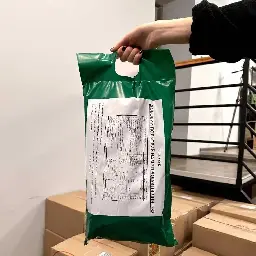
- List of South American Fruit Trees (Amazon Forest Gardening)
Where can I find a list of fruit trees that grow in the Amazon?
I'm currently eating a mostly raw vegan diet, and I'm trying to transition to fruitarian diet. But I live in Northern Europe, and the fruit options here are very limited. Obviously I'd be better living some place topical, and I've been seeing some posts from some sustainable communities in South America.
Specifically, there seems to be many permaculture projects in the Amazon that are able to grow their own fruits in fruit-heavy forest gardens. I've learned about a lot of new exotic fruits from some of their videos, but what I really want is a comprehensive list of all the fruits that one can grow in the Amazon.
Does anyone know where I can find a list of fruits that grow in the Amazon (native and non-native)?
- Can anyone share their experience with non-dairy milk makers?
So, I'm not sure if I should be posting here on in the Frugal community, but I'm hoping for some feedback.
We've been saving a ton of money by making our own bread, pizza dough, and pasta at home, along with cooking dried beans. But non-dairy milks are by far the biggest food expense for us, and I'm looking at the option of getting a non-dairy milk maker.
If you've used one, does it actually save money?
Is it a PITA to use or can you make large batches (2+ liters) at a time that will keep for a day or two?
Anything else I should know that I'm simply not aware of when purchasing/using one?
- Animal rights activist charged under new law after protest at Fearman's Burlington, Ontario pork plant
It's the same plant where Regan Russell was killed after being struck by a truck carrying pigs
- Joaquin Phoenix joined animal rights activists outside Burlington, Ontario slaughterhouse
Phoenix has spoken out about Ontario's so-called 'ag-gag' bill and the death of Regan Russell
- Animal Justice Lawyers Argue in Court to Overturn Ontario Ag Gag Lawanimaljustice.ca Animal Justice Lawyers Argue in Court to Overturn Ontario Ag Gag Law
Ag gag laws cover up cruelty on farms and violate free expression.
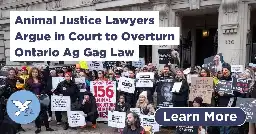
This is the Animal Justice site's own blog with lots more information than the press
- How to Expose Animal Cruelty
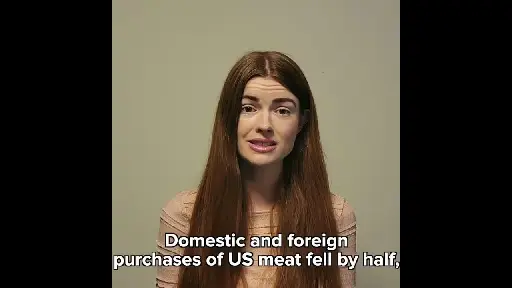
YouTube Video
Click to view this content.
The manual referenced in the video can be found here: https://www.directactioneverywhere.com/theliberationist/investigation-manual
- Constitutional challenge of Ontario's agriculture 'gag' laws to kick off in Toronto courtroomtoronto.ctvnews.ca Court battle over Ontario's agriculture 'gag' laws kicks off in Toronto
A constitutional challenge of recent Ontario legislation that prevents the undercover filming of factory farms and the animals kept on them kicked off in a Toronto courthouse on Monday morning.
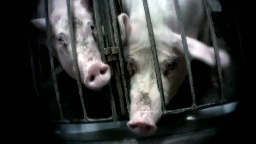
- Can someone explain why plain cheerios are always more expensive than honey nut cheerios?
Ingredient-wise, they have the same, except the honey nut has extra crap in it... why is it always cheaper? We're talking a 30% difference per 100g!
- YouTube channel of animator and vegan activist, dlal
Satirical animated skits examining veganism and carnism.
You can be one of the first thousand subscribers! I wouldn't be surprised to see this blow up some day. The recent work is very good and the trajectory it's on is very promising. I find channels like this inspirational to work on my own expressions.
- A Modern Argument for the Rights of Animals | Peter Singer | TEDwww.ted.com Peter Singer: A modern argument for the rights of animals
Why do we prioritize human rights over those of other species? Philosopher Peter Singer dives into what he calls "speciesism," the root of the widely ignored mistreatment of animals around the world, from factory farms to product-testing facilities. He makes the case for ending the commercial exploi...

Renowned philosopher Peter Singer discusses his experience becoming vegan, and makes his argument for animal rights.
- Eating less meat 'like taking 8m cars off road'www.bbc.com Eating less meat ‘like taking 8m cars off road’
A new Oxford University study pinpoints for the first time how high- and low-meat diets impact the planet.
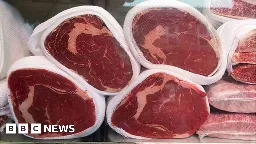
The research shows that a big meat-eater's diet produces an average of 10.24 kg of planet-warming greenhouse gasses each day. A low meat-eater produces almost half that at 5.37 kg per day. And for vegan diets - it's halved again to 2.47 kg a day.
- Jennie Gyllblad -- spicy artist's YouTube channel
Jennie is another YouTuber who produces content from a vegan perspective that isn't necessarily about veganism. She is a comic artist.
- Activists raise awareness to Loblaw's broken promises
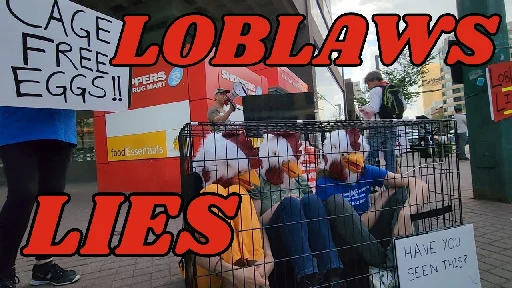
YouTube Video
Click to view this content.
Video description:
6 Jul 2023 Here is a short video of our protest at Shoppers who is owned by Loblaws, to protest and demand a new date for them to only sell cage free eggs in their store. While their own PC brand is Cage Free, in 2016 they said their entire stores supply would be cage free by 2025. They have since gone back on there word, yet again, and now the hens will be confined for even longer, undetermined amount of time. We are holding Loblaws accountable and will be doing this again very soon. Be Vegan
My Contact information veganpoet1973@gmail.com https://www.patreon.com/veganpoet_1973
- Vegan Gaze and Elwood Dog Farm offer the public dog meat samples
YouTube Video
Click to view this content.
- curated list of awesome resources, pointers, and tips related to veganismgithub.com GitHub - sdassow/awesome-veganism: curated list of awesome resources, pointers, and tips related to veganism
curated list of awesome resources, pointers, and tips related to veganism - sdassow/awesome-veganism
- Randy Feltface explains carnism to a room full of uncomfortable carnists who paid to be there
YouTube Video
Click to view this content.
Veganism doesn't come up very often in his work but when it does he is not shy about it. Otherwise, it's nice to have a comic I know isn't going to say something stupid and cruel.
- Greta Thunberg speaks at COP28 preparatory conference (Reuters)
YouTube Video
Click to view this content.
Swedish climate activist Greta Thunberg told the Bonn COP28 preparatory conference that humanity needed to act on the climate crisis now or face ‘the death sentence.’
https://www.reuters.com/video/watch/greta-thunberg-speaks-at-cop28-prep-conf-idOV962813062023RP1
- Dangerous Pathogens and Cruelty Law Violations at Perdue Subsidiary, Animal Rights Report Alleges (DxE Open Rescue)theintercept.com Dangerous Pathogens and Cruelty Law Violations at Perdue Subsidiary, Animal Rights Report Alleges
Dangerous pathogens and violations of animal cruelty laws were found at Perdue Farms subsidiary Petaluma Poultry, alleges a Direct Action Everywhere report.
Hours before dawn on Tuesday, eight animal liberation activists entered the Petaluma Poultry slaughterhouse facility in Sonoma County, California, disguised as workers, with the aim of rescuing as many chickens as possible.
Meanwhile, approximately 175 protesters gathered outside the property, where up to 49,000 chickens are killed every day, and where animal rights activists allege animal abuses and risks to public health are rampant. Some of the demonstrators joined those who had entered the property to assist in the planned “open rescue” action: a tactic by which activists publicly remove ailing animals from factory farms and bring them to animal sanctuaries, while highlighting the harms of the meat and animal products industry.
By 3 a.m. PT, as partly captured in a video shared exclusively with The Intercept, activists had removed 11 chickens from trucks that had transported thousands of chickens onto the slaughterhouse property, packed together as tightly as physically possible. Seven more birds were rescued soon after from a truck on its way to the facility.
I'm in Tuesday’s rescue and demonstration, organized by activists affiliated with animal rights group Direct Action Everywhere, or DxE, coincided with the release of a report from the group Tuesday morning. Shared with The Intercept and disseminated to regulatory agencies, the report alleges that Petaluma Poultry, a subsidiary of agribusiness giant Perdue Farms, is routinely violating animal cruelty laws and exposing the public to major health risks — including the possibility of future zoonotic disease pandemics — through brutal and negligent treatment of birds marketed as “free range” and “organic.”
The new report is based on undercover investigations at the slaughterhouse and a half dozen of Petaluma’s supplier farms, including whistleblower reports, firsthand observations, and hidden camera footage, alongside findings from veterinary medicine experts and infectious disease specialists who carried out fecal tests and examined animals — some sick, some already dead — brought to them from Petaluma facilities by DxE activists. (Petaluma Poultry and Perdue Farms did not immediately respond to The Intercept’s requests for comment on Tuesday morning’s report release and rescue.)
The very same animals that are cheerily packaged and sold in grocery stores nationwide under the personalizing brand names “Rocky” and “Rosie” — “Rosie” was the first chicken line in the United States to carry a certified organic label — are processed in a slaughterhouse where undercover investigator Raven Deerbrook said she found animals that were tortured and sick and where workers labored in dangerous conditions.
A dead chicken lies on a dirt covered shelf in 2023.
Photo: Courtesy of Direct Action Everywhere (DxE)
Deerbrook’s account and materials formed the basis of parts of the new DxE report, which the group sent to local, state, and federal authorities to request official investigations. DxE sent its report to USDA Farm Service Agency California Executive Director Blong Xiong; California Gov. Gavin Newsom and Attorney General Rob Bonta; Sonoma County Animal Services, District Attorney Carla Rodriguez, Sheriff Eddie Engram, and Administrator Christina Rivera; and a host of other officials and agencies from nearby counties.
“Hundreds are discovered to be so diseased that they are condemned after being slaughtered.”
“I am seeing sick birds being crowded onto trucks by the thousands. Dozens are dying on the way to the slaughterhouse,” Deerbrook, who entered the slaughterhouse undetected in a worker’s uniform, photographed internal documents, and set up hidden cameras, alleged over Signal message. “Hundreds are discovered to be so diseased that they are condemned after being slaughtered.”
Deerbrook, who worked for months gathering materials for the DxE report, said that she saw chickens injured while being hung on the slaughter line; she photographed company reports about bruised birds, which is a sign of abuse; she saw evidence of birds missing the “stun bath”: an electrical water bath in which birds’ heads are dipped to stun them unconscious before slaughter. She added that she saw “birds trying to escape and being cut-into while they were conscious, and I see evidence of them being boiled alive.” She also charged that she saw workers performing “one of the most dangerous tasks (live hanging) in pitch darkness, and many are suffering with pain and injuries.”
None of the local, state, and federal officials and agencies that received the report responded immediately to The Intercept’s request for comment.
Over 1,000 animals were “condemned” — disqualified from the food supply — on a single day in April 2023 after being slaughtered, according to documents from the slaughterhouse obtained by Deerbrook over a three-month period. Hundreds of them were condemned due to septicaemia, a form of bacterial blood poisoning, and toxemia. The investigation included lab reports from veterinarians that found dangerous pathogens in several birds. The slaughterhouse was also found to have unusually high rates of salmonella and campylobacter, two bacteria that cause widespread illnesses in humans, according to a local press report citing government data.
While Covid-19 was not transmitted to humans through factory farming, the deadliest pandemic in U.S. history should have prompted a reckoning over how we think about zoonotic disease spread and the undeniable future pandemic risks of intensive animal produce industry. Like so many ostensible pandemic reckonings, the dangerously concentrated — not to mention torturous — mass production of meat and animal products continues unfettered. Related Amid Bird Flu Outbreak, Meat Producers Seek “Ventilation Shutdown” for Mass Chicken Killing
“Direct Action Everywhere (DxE) investigators made repeated visits to six Petaluma Poultry-supplying factory farms in Northern California,” the report says. “They documented routine violations of California’s animal cruelty laws, including birds collapsed on the floor or stuck on their backs and unable to walk to food or water, left to slowly starve to death, as well as infectious diseases that threaten public health. Yet, despite dozens of reports to county and state authorities, the government still refuses to hold the company accountable.”
Current felony defendant Rachel Ziegler holds a bird removed from a barn at McCoy’s Poultry on Sept. 29, 2018.
Photo: Courtesy of Direct Action Everywhere (DxE)
DxE has been making allegations about cruelty and neglect at Petaluma Poultry since at least 2018, when, following investigations into widespread animal cruelty at its facilities, the animal rights group’s activists carried out a previous mass rescue action at Petaluma supplier, McCoy’s Poultry. After examining birds retrieved from the farm, Sonoma County’s own Animal Services Department referred McCoy’s to the sheriff’s office as a suspect in an animal cruelty case. The facility was shuttered, but no such charges materialized.
Meanwhile, 58 activists were arrested on felony charges for their involvement in the attempted rescue that drew attention to these systematic abuses. Many of these cases have since been dropped or resolved through diversions or plea deals. Four people involved in nonviolent protest actions against factory farms are currently still facing criminal charges in Sonoma County, including a total of 12 felony charges.
“The diseases and bacteria that we found are pretty shocking.”
“Following the 2018 rescue effort at McCoy’s Poultry, that facility closed down, but the cruelty we found there was not an isolated incident,” said Zoe Rosenberg, a DxE activist who participated in Tuesday’s rescue effort. “We have continued to investigate Petaluma Poultry farms across Northern California and we have repeatedly found sick, injured, collapsed, and starving animals.”
Rosenberg said that “the diseases and bacteria that we found are pretty shocking.” The pathogen Clostridium perfringens, which was found in the necropsy report carried out by the California Animal Health and Food Safety Lab at the University of California, Davis of a chicken from the farm, according to the DxE report, can cause necrotic enteritis in humans: a bowel disease that kills up to 50 percent of humans who contract it and is responsible for 8 percent neonatal intensive care unit admissions. “This industry is hurting all of us, especially those who are immunocompromised like I am,” Rosenberg, who has a chronic illness, told me.
“75% of new or emerging infectious diseases in humans come from animals,” the DxE report says. “We see the perfect breeding ground for such new diseases to emerge in the filthy, crowded, and disease-ridden conditions at Petaluma Poultry factory farms, particularly given the company’s inability to keep these diseases out of the slaughterhouse and the food supply.”
Police were called to the Petaluma Poultry slaughterhouse in response to Tuesday’s action, but all the activists on the property had left with the rescued chickens by the time cops entered the facility. None of the rescue participants on Tuesday morning have been arrested at the time of writing.
Previous rescues have led to numerous arrests and charges, but DxE has a strong record when it comes to winning cases in court. In March, two DxE activists, Alicia Santurio and Alexandra Paul, were acquitted in California of theft charges over the rescue of two chickens from Foster Farms.
- Editorial position as moderator
There are some perennial debates in online communities so let me just get ahead of a few and state the editorial position of this lemmunity. I don't see my position changing a great deal but you're welcome to share yours.
-
Veganism is about animal rights and animal exploitation. If those things cannot be shown relevant, it's not about veganism. A plant-based diet intended to lose weight and save the climate doesn't especially have anything to do with veganism.
-
"Exploitation" is taken to mean to use for any benefit, without additional connotations, such as in: "She exploited her superior knowledge of the rules to outperform her opponents." If you're getting something out of it, it's exploitation. The negative connotations of the word only come up when it involves unconsenting, sentient creatures.
-
"Animals" are taken to mean non-human animals. Vegan philosophy does not concern human-human interactions. Humans may sometimes exploit one another, because humans have the capacity to consent when it is mutually beneficial. Veganism assumes that an animal does not have the capacity to consent to exploitation, in the same way that mainstream moral philosophy assumes that children do not have the capacity to consent. It is an assumption we make for the protection of the vulnerable, even though there is no hard line between adult and child, or animal and human.
-
Owning an animal for companionship is exploitation.
-
Attempting to make another creature unnecessarily dependent on you is abuse, whether it's an animal or a human.
-
All the intelligent creatures we create are our children and are all owed unconditional love from their creators.
-
No one is perfect. We all have blood on our hands.
-

